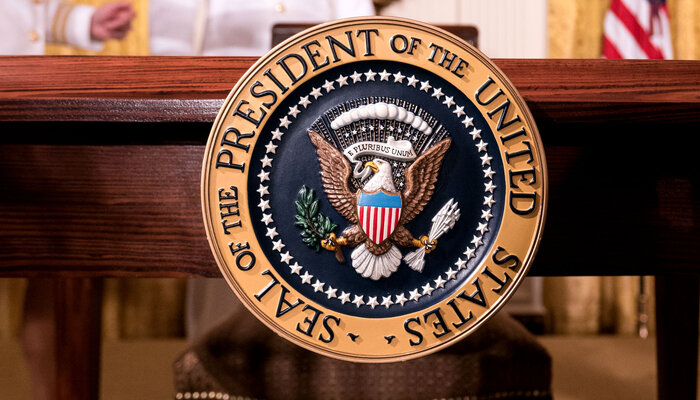The House January 6 committee continues to find evidence that the United States only narrowly avoided a coup at the end of the Trump administration. Documents turned over to the committee reveal that Republican members of Congress encouraged the former president to use emergency powers — some real, some imagined — to overturn the election. To stop a future president from invoking these laws to stay in office, Congress must pass legislation that guards against presidential abuse of emergency powers.
Late last month, CNN obtained over 2,300 text messages that White House Chief of Staff Mark Meadows sent and received between Election Day 2020 and President Biden’s inauguration. They make for terrifying reading, but one in particular stands out. On January 17, 2021, Rep. Marjorie Taylor Greene (R-GA) sent Meadows a text stating, “In our private chat with only Members, several are saying the only way to save our Republic is for Trump to call for Marshall [sic] law. I don’t know on those things. I just wanted you to tell him. They stole this election. We all know. They will destroy our country next.”
As the Washington Post has reported, Greene wasn’t the only one relaying messages to Trump to use his emergency powers to stay in office. Other Republican lawmakers and Trump allies also told the Trump administration to declare martial law as well as invoke the Insurrection Act, use the International Emergency Economic Powers Act to seize voting machines, and make the U.S. military conduct the election again. Gen. Mark A. Milley, chairman of the Joint Chiefs of Staff, was so concerned Trump might attempt a coup through emergency powers that he told the other joint chiefs he would resign rather than carry out an illegal order.
To be sure, some of Trump’s supporters were delusional about the powers of the president. For instance, according to the Brennan Center’s analysis, the president has no legal authority to impose martial law, and there is no law that would allow the military to “rerun” an election.
But other emergency powers are all too real, and during his time in office, Trump didn’t hesitate to use them when he wanted to unilaterally impose his will on the country. For example, when Congress wouldn’t fund his southern border wall, Trump declared a national emergency to open the spigot. And although Trump never followed through on his threats of invoking the Insurrection Act during the protests over the police killing of George Floyd, the law is in dire need of reform. It has not been updated in more than 150 years and gives the president far too much discretion to use the military as a domestic police force.
The text messages — and the very real possibility Trump may run for president again — should spur Congress to reform the president’s emergency powers. There are several bills before Congress right now — including the Protecting Our Democracy Act and the National Security Powers Act — that would establish a vital check against abuse. They would place a time limit on presidential emergency declarations unless Congress voted to extend them. Congress should enact this basic reform and incorporate safeguards into the Insurrection Act and International Emergency Economic Powers Act as well.
Building checks and balances into the most potent authorities the president possesses should be uncontroversial in a democracy governed by the rule of law. Without such reforms, we continue to tempt fate that a president might one day use these powers to try to do away with democracy for good.







